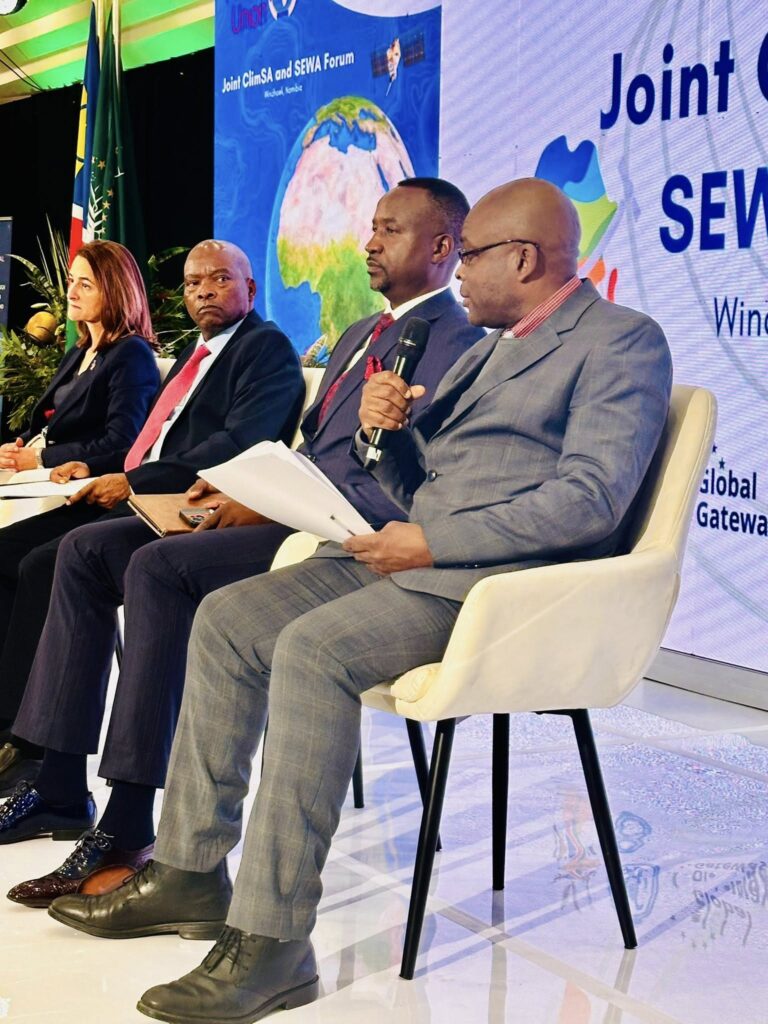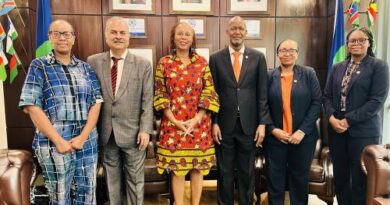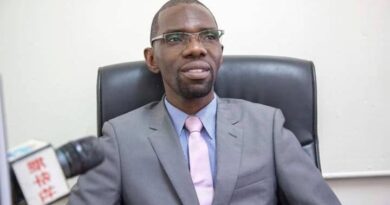Namibia Hosts Landmark Climate and Space-Based Early Warning Forum
The Government of Namibia, in partnership with the African Union Commission (AUC) and the Southern African Development Community (SADC), hosted a major continental gathering in Windhoek to advance climate services and launch a new space-based early warning initiative.
Held from 23 to 27 June 2025, the Joint Forum of the Intra-ACP Climate Services and Related Applications (ClimSA) Programme and the Space-based Earth Observation for Early Warning in Africa (SEWA) initiative brought together policymakers, technical experts, and development partners under the theme: “Accelerating Access to Climate and Weather Services for Resilient African Economies and Communities.”
The Forum reviewed progress under ClimSA and officially launched SEWA—a groundbreaking programme that leverages satellite technologies to improve the accuracy and timeliness of early warning systems across Africa.
Delivering remarks on behalf of SADC Executive Secretary H.E. Elias Magosi, Dr. Patrice Kabeya, Senior Programme Officer at the SADC Secretariat, reaffirmed the region’s commitment to climate resilience. “The ClimSA and SEWA programmes are critical tools that will enable our region to better anticipate, prepare for, and respond to climate-related risks,” said Dr. Kabeya.
He emphasized the importance of ensuring that climate services and space-based technologies benefit communities at the grassroots level—especially smallholder farmers, women, and other vulnerable groups.
The Forum also facilitated high-level dialogue among Regional Climate Centres, National Meteorological and Hydrological Services, and government ministries, with participants exchanging best practices for integrating climate services into national planning, strengthening institutional frameworks, and scaling up local adaptation.
The launch of SEWA marked a milestone in Africa’s use of Earth observation to strengthen disaster risk management, food security, and sustainable development. The initiative is expected to improve early warning systems and enhance cooperation across the continent in the face of worsening climate impacts.
Organisers stressed that access to timely, reliable, and locally relevant climate information is now essential—not optional—for Africa’s survival and prosperity.
The Joint Forum concluded with a strong call for continued investment in climate intelligence, data systems, and community-level resilience to protect lives, livelihoods, and ecosystems across Africa.



